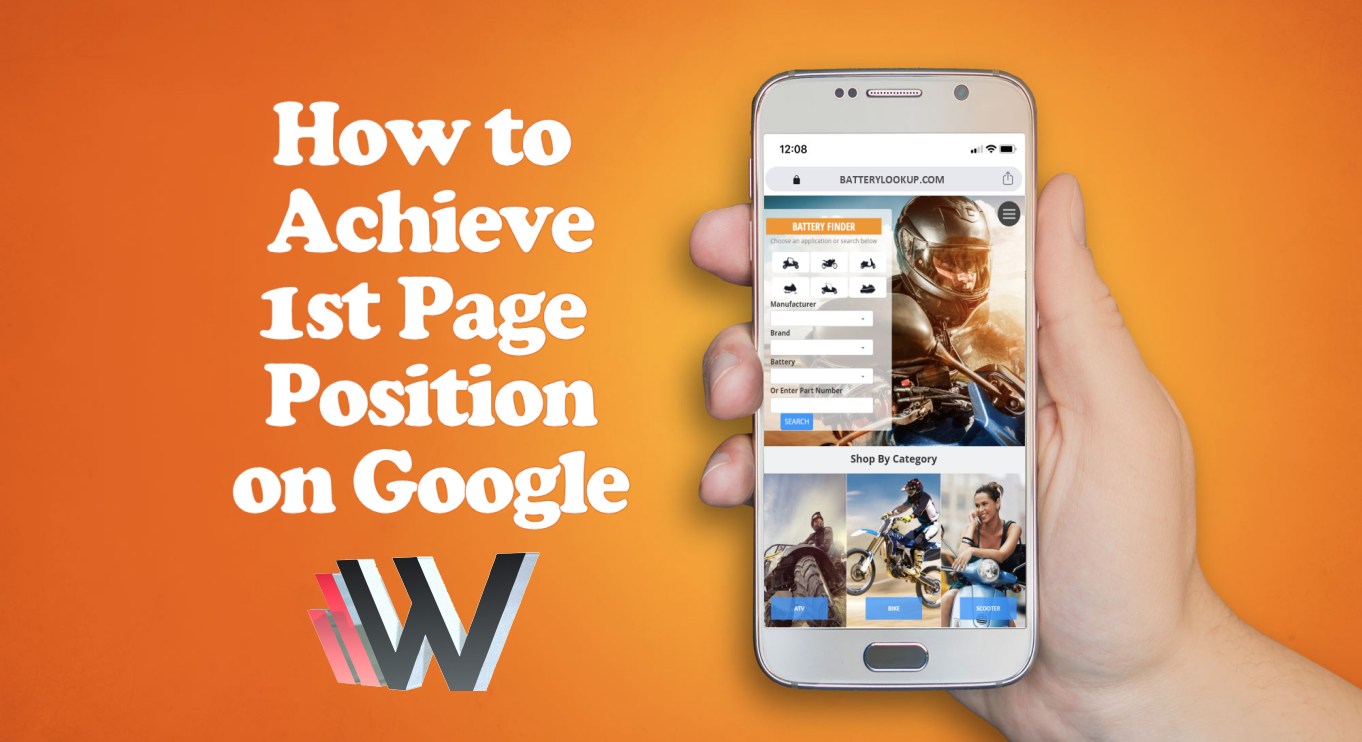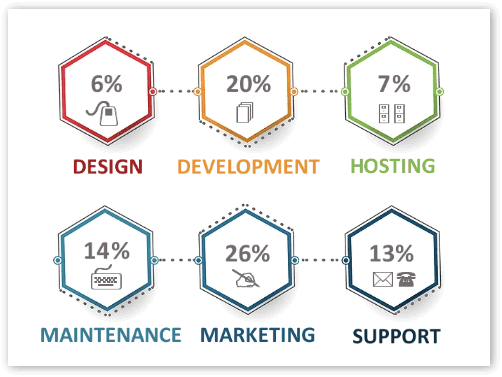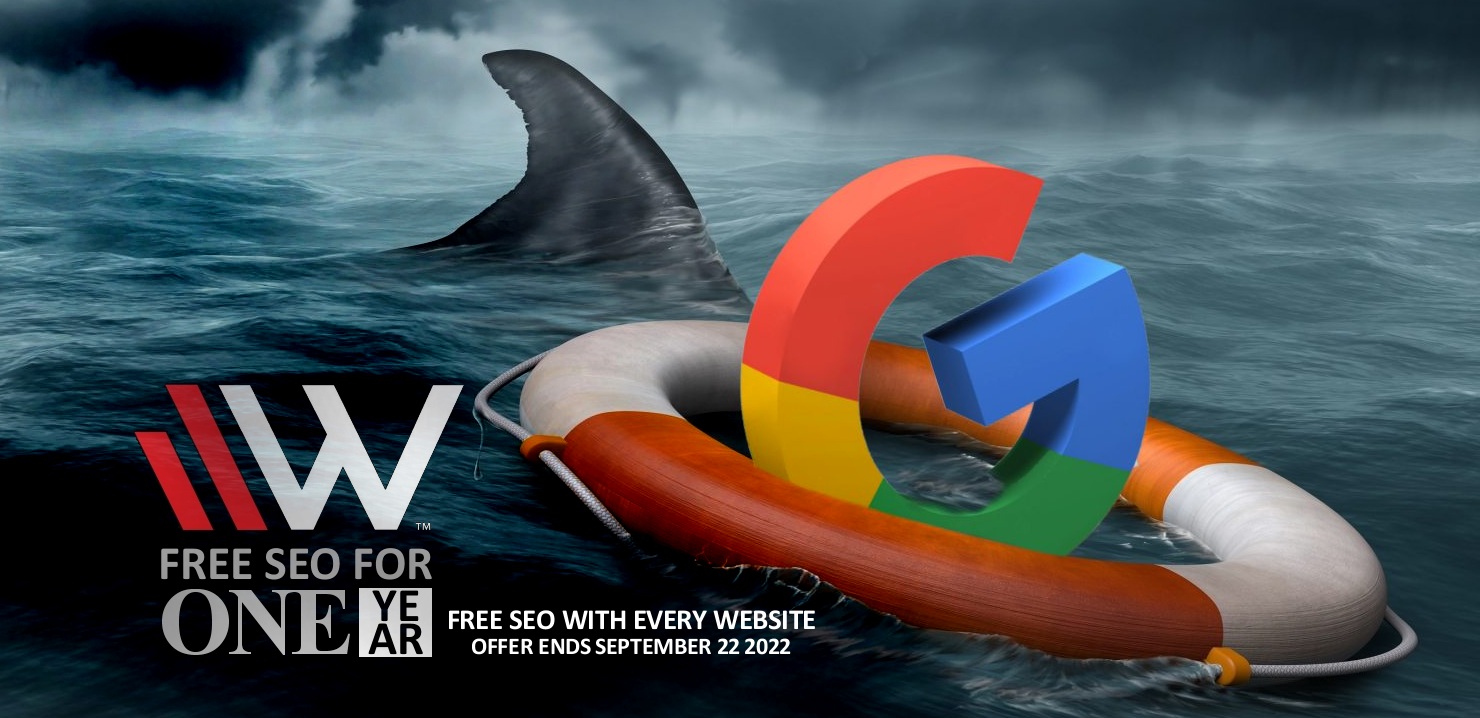Your business needs need help getting first page position on Google
SEO science tells us consumers who use search engines change their search description after the third results page. WEBPRO understands consumer search behavior at a forensic level and have concluded most marketing agencies (namely SEO services) haven't been in business long enough to appreciate the search psychology and science behind the end-user. I’m sure you will agree most people by nature are impatient and since our attention span has grown a tad shorter over the last couple of decades, using search engines is no different.

The reason for this is attributed to the instant gratification of finding what you want as quickly as possible. It’s like cookie dough in a tube. Making it from scratch takes longer but a quick slice and dice, you’re tasting results in 15 minutes. What would you rather have?
Ever wonder why convenient stores charge double for the same loaf of bread found at your favorite market? Think of that loaf of bread or bag of chips as a quick fix. That would be PPC or AdWords and we’ll get to that in a second.
No matter how good marketing agencies claim to be, practical application and history is a qualifying factor provided they can prove how good they are and what they can do for you in real-time. Can they really walk the walk after the talk? It is unfortunate these so-called SEO experts don’t even consider end-user search behavior when draining your marketing budget. Why would they? This is precisely why younger web firms simply can't deliver. One of the reasons they disappear leaving you in the lurch is because they fail to bring to your attention what it really takes to deliver a battle-tested website.
There are 6 major components of a website deliverable. Since we have almost 30 years of experience we concluded the percentages to bring a project full cycle. We hope you find it useful.

The SEO industry should retitle the acronym from SEO to OOP (Organic Optimization and Placement) although as accurate as that sounds it also sounds like a liability, doesn’t it? OOPs doesn’t instill a lot of confidence, but it would be refreshing if that level of language was given some definition.
If they did, then they would tell me what Zona, Jupiter Research and the Gartner Group had to say regarding 84% to 86% of consumer searches rely on organic placement over PPC. Why? Because the consumer places a higher trust in organically placed websites over PPC. Consumers know anyone can pay their way to the top.

There are several companies who will cheerfully charge between $2500.00 to $8000.00 a month just for an SEO subscription. I don’t see how offloading SEO services to a third party makes a webmaster especially since they don’t have immediate control over the code. Indeed, it takes more than one individual to produce, deliver and maintain a website; 4 at a minimum no matter the condition.
A little common sense goes a long way.
Some of these marketing charge-you-up-the backside-strategies we consider ludicrous because they deliver broad-brush services (some of which) that are inconsequential to first page placement. For instance, not every website needs a social media footprint. If you’re running a political campaign, or launching a consumable then fine! If you’re an electronic component manufacturer you better place your sights on the language an engineer is going to use that will draw them to your schematics page because they’re sure as hell not going to Facebook to like your silly post. Believe it or not (and you better) some people do read instead of skim. Developing the front and back-end to a website is more of an unseen art and how it’s developed (not designed) will determine your placement.
The technique we're talking about is very time consuming and requires a marketing savvy, polish and an understanding of the way the primary search engine companies work coupled with end-user search behavior. We’ve seen improperly delivered websites that were dropped from Google altogether to being so far down on the food chain they might as well never existed.
When to consider Using PPC (Pay Per Click) or AdWords
Everyone at some point will consider using PPC (PAY PER CLICK) or Google AdWords. There is value using PPC provided you know how to use it but it can be confusing and more often than not, ineffective and costly if you are attempting it for the first time.
Full Disclosure
Even if you are a PPC whiz-O-matic, losses still outweigh the gains.
However, if used smartly with experienced guidance, it can generate desirous results. That being said, where most marketeers fail, boils down to planning and execution. We’ve seen a lack luster from impact messaging, call to action, to frequency. Don’t forget, Google will pass judgement on your ad in the end. It has to go through a compliance washer. Your TEXT or IMAGE AD maybe the hottest jellybean in the jar but if they say no after hours or days of waiting, what will you do?
There is an art to writing for your audience when using textual ads (to be sure) that means you can usually spot the bland headliners. If improperly written, your message will blend in so well, it won’t be seen or clicked. Spending all that money for crickets instead of click-its.
Answer Truthfully
Does your website graduate in the top 1% of its' class organically?
Are Your Organic Search Engine Efforts Paying Off?
Are Your PPC / AdWords at the very least paying for itself?
Where do you rank?
Do you have any means of measuring any activity?
Does your web team proactively recommend any improvements?
Is your webmaster responsive or timely?
Are you losing confidence or feel you’re being held hostage?
If you feel you have to walk on eggshells to have a constructive conversation regarding any of those questions, chances are, you’re stuck with the wrong company.
How many searches are performed each day? 5.6 billion searches on Google alone.
Search Engine Marketing (SEM) or (SEO) Search Engine Optimization is one of the hottest disciplines in marketing—and for good reason. It's estimated Google processes approximately 63,000 search queries every second, translating to 5.6 billion searches per day and approximately 2 trillion global searches per year. The average person conducts between three and four searches each day.
So where is your website?
All of these signs point to search becoming more and more strategic within the marketing mix. Primarily because it's the most cost-effective way to drive qualified traffic to your site. Unlike other advertising mediums, it's non-intrusive—meaning prospective customers are actively seeking information relevant to your products and services.
Did you notice you're getting more SPAM TRAFFIC clogging your servers or personal email since submitting your website?
There’s a reason for that too.
